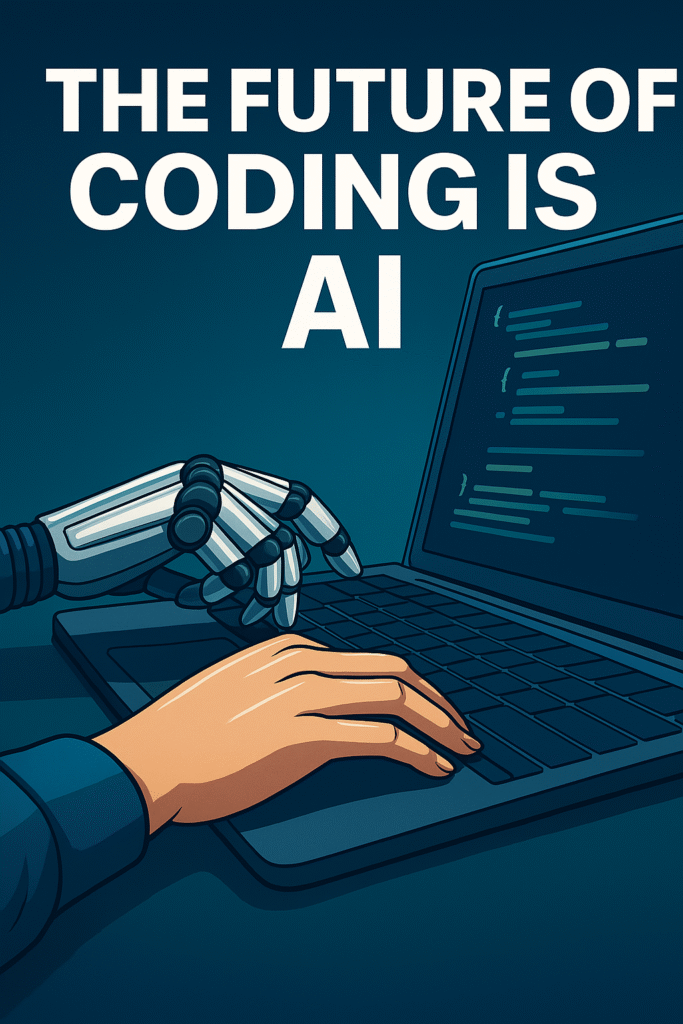From powering search to writing code—AI’s dominance grows as GitHub Copilot leads a revolution in software development.

In a world increasingly driven by artificial intelligence, yet another milestone marks the growing power of AI—this time in the world of coding. GitHub, the leading global platform for developers, has revealed that its AI-powered assistant, Copilot, has surpassed 20 million users since its launch in 2021. The announcement was made by GitHub CEO Thomas Dohmke, who emphasized that AI tools like Copilot are becoming as essential to developers as cloud computing or version control systems like Git.
“AI will be as fundamental to software development as cloud and Git,” said Dohmke during a press briefing.
This surge in adoption isn’t just hype—it signifies a paradigm shift in how code is written, tested, and deployed. AI isn’t just suggesting syntax anymore; it’s writing functions, generating documentation, and reducing development time dramatically.
AI’s Expanding Dominance Across Fields
While GitHub Copilot is transforming software development, this is just the tip of the iceberg. AI has already made deep inroads into:
- Healthcare (diagnostic imaging, drug discovery),
- Finance (fraud detection, trading bots),
- Education (personalized learning platforms),
- Media (automated content generation), and
- Law (contract analysis, legal research).
The common thread? Automation, efficiency, and scale—often replacing repetitive human tasks.
Coding: From Craft to Collaboration with AI
GitHub Copilot, built on OpenAI’s Codex model, supports multiple programming languages and IDEs like VS Code and JetBrains. The tool uses context from the developer’s code to autocomplete entire functions, suggest new lines, or even offer real-time fixes.
As the adoption of Copilot increases, enterprises are incorporating AI-assisted programming into their CI/CD pipelines, improving productivity while shortening release cycles.
Wider Implications: Creation or Displacement?
AI in coding raises an important debate:
Is AI creating jobs or replacing them?
While junior developers may find themselves competing with increasingly capable AI, experts believe that AI will augment rather than replace most human coders. Ted Chiang, a tech commentator and sci-fi writer, said,
“AI won’t replace developers. Developers who use AI will replace those who don’t.”
However, tasks like bug-fixing, documentation writing, and code refactoring may become fully automated, reducing the need for certain job roles over time.
Global Race: USA vs China in AI Coding
The USA is leading this revolution, with GitHub (owned by Microsoft), OpenAI (partnered with Microsoft), Google’s DeepMind (AlphaCode), and Meta all investing heavily in AI-powered software development.
Meanwhile, China isn’t far behind. Companies like Alibaba, Huawei, and Baidu are developing their own AI coding assistants. Baidu’s ERNIE Bot and Alibaba’s Tongyi Qianwen have already demonstrated multi-language code generation and contextual programming support.
Expert Opinions and Remarks
- Yann LeCun (Chief AI Scientist, Meta):
“AI coding agents will democratize programming—allowing anyone to become a software creator.” - Andrew Ng (AI pioneer):
“We are entering an era where AI is a partner, not a tool. Developers who embrace AI will become 10x more productive.” - Fei-Fei Li (Stanford AI Professor):
“This transition is about augmentation, not automation. We must align AI tools with human creativity.”
The Road Ahead: Future of AI Coding Tools
The future is already unfolding:
- GitHub Copilot Enterprise is being deployed across Fortune 500 companies.
- Google’s AlphaCode 2 is being tested to write production-grade code.
- Open-source AI models like LlamaCode and WizardCoder are gaining traction.
In the next 3-5 years, expect:
- Voice-based coding, where developers speak instead of type.
- AI Pair Programmers, that debug and deploy automatically.
- Low-code/no-code platforms, powered entirely by generative AI.
Conclusion
The rise of GitHub Copilot isn’t just a milestone in coding—it’s a reflection of AI’s inevitable integration into every part of the digital ecosystem. From education to enterprise, from Silicon Valley to Shenzhen, the message is clear:
Adapt to AI or risk being left behind.